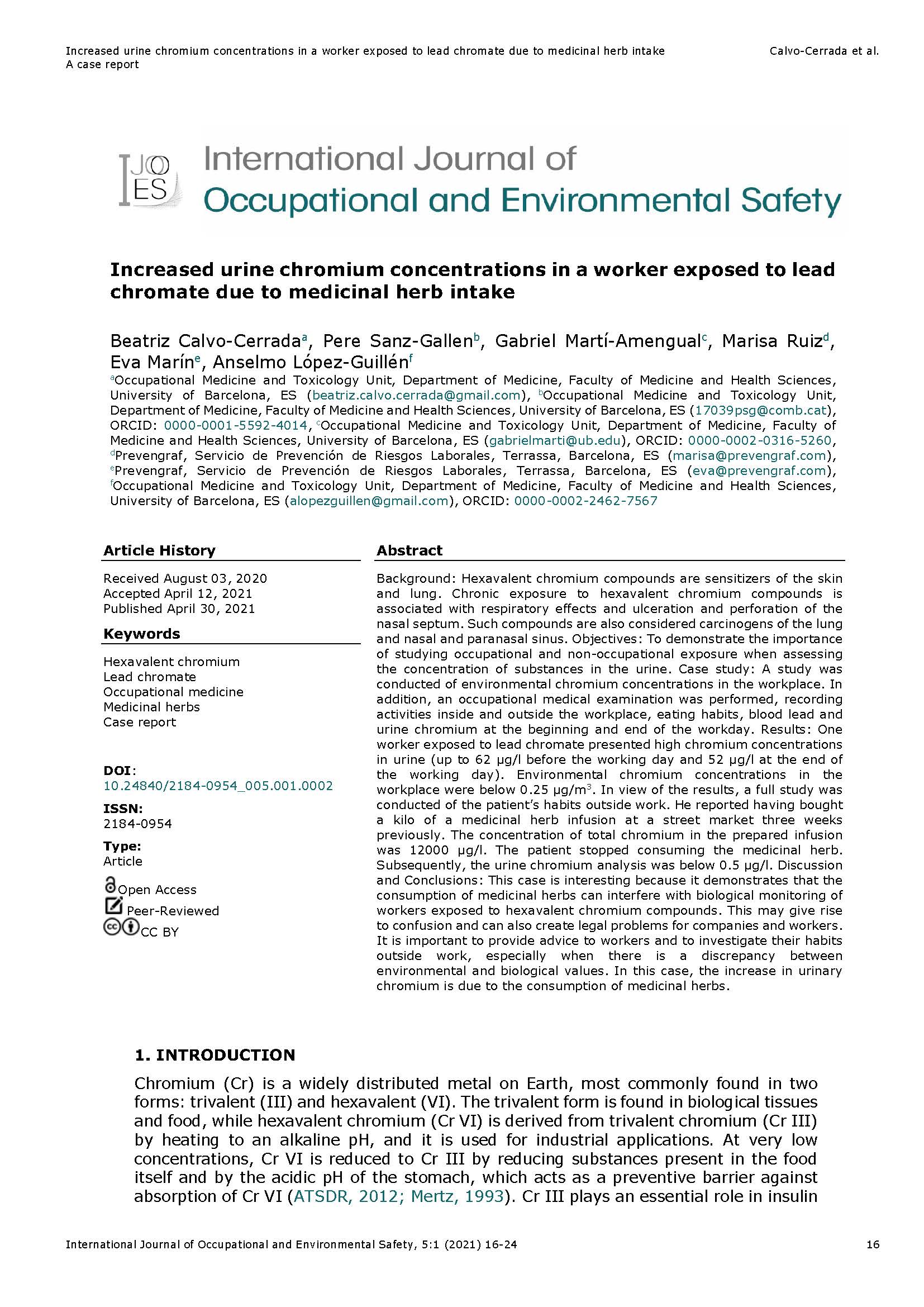Increased urine chromium concentrations in a worker exposed to lead chromate due to medicinal herb intake (Article)
Main Article Content
Abstract
Background: Hexavalent chromium compounds are sensitizers of the skin and lung. Chronic exposure to hexavalent chromium compounds is associated with respiratory effects and ulceration and perforation of the nasal septum. Such compounds are also considered carcinogens of the lung and nasal and paranasal sinus. Objectives: To demonstrate the importance of studying occupational and non-occupational exposure when assessing the concentration of substances in the urine. Case study: A study was conducted of environmental chromium concentrations in the workplace. In addition, an occupational medical examination was performed, recording activities inside and outside the workplace, eating habits, blood lead and urine chromium at the beginning and end of the workday. Results: One worker exposed to lead chromate presented high chromium concentrations in urine (up to 62 µg/l before the working day and 52 µg/l at the end of the working day). Environmental chromium concentrations in the workplace were below 0.25 µg/m3. In view of the results, a full study was conducted of the patient’s habits outside work. He reported having bought a kilo of a medicinal herb infusion at a street market three weeks previously. The concentration of total chromium in the prepared infusion was 12000 µg/l. The patient stopped consuming the medicinal herb. Subsequently, the urine chromium analysis was below 0.5 µg/l. Discussion and Conclusions: This case is interesting because it demonstrates that the consumption of medicinal herbs can interfere with biological monitoring of workers exposed to hexavalent chromium compounds. This may give rise to confusion and can also create legal problems for companies and workers. It is important to provide advice to workers and to investigate their habits outside work, especially when there is a discrepancy between environmental and biological values. In this case, the increase in urinary chromium is due to the consumption of medicinal herbs.
Article Details

This work is licensed under a Creative Commons Attribution 4.0 International License.

